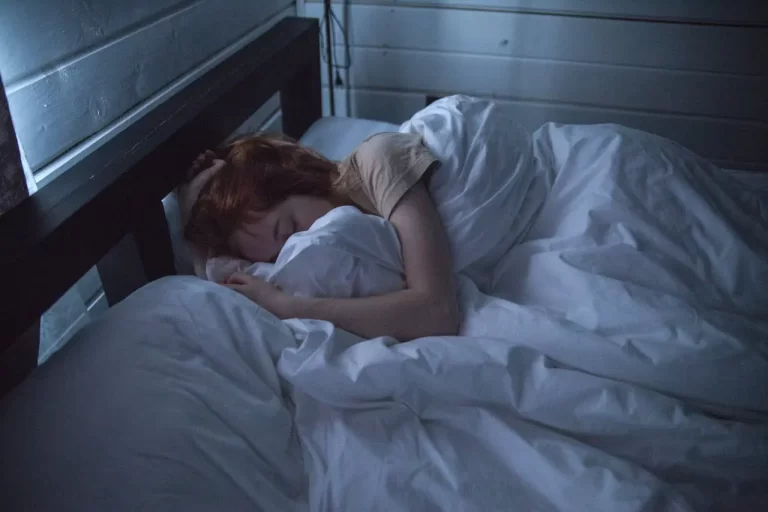Key Points
- Poor sleep is closely tied to mental health challenges, from stress and anxious thoughts to depressive states.
- Science shows that quality sleep supports memory, mood regulation, and emotional balance.
- Practical steps—like setting a consistent bedtime, reducing screen exposure, and creating a calm environment—can improve sleep hygiene.
- Small, daily choices about sleep add up to major long-term benefits for both mental and physical health.
The Hidden Cost of a Restless Night
A restless night doesn’t just leave you yawning the next day—it reshapes how your brain and body function. Studies have found that even one night of short sleep can increase irritability, heighten stress reactivity, and impair memory formation. Over time, chronic sleep problems contribute to depressive states, anxious thoughts, and reduced ability to cope with everyday challenges [1].
In workplaces, this shows up as lost productivity and reduced focus. In personal life, it can mean mood swings, strained relationships, and difficulty staying motivated. Poor sleep hygiene is not just an inconvenience; it is a health risk with wide-reaching consequences.
Why Sleep Matters for Mental Health
Sleep isn’t just rest—it’s a biological reset button. During deep sleep, the brain consolidates memories, clears out metabolic waste, and restores balance in neurotransmitters like serotonin and dopamine that regulate mood and motivation [2]. Without this nightly reset, emotional control becomes harder, negative thoughts more intrusive, and stress more difficult to manage.
A growing body of evidence has established sleep as both a risk factor and a protective factor for mental health. For example:
- Depressive states: Disturbed sleep is one of the strongest predictors of depressive states [1].
- Anxious thoughts: Shortened or irregular sleep increases activity in the amygdala—the brain’s threat detector—making individuals more sensitive to stress [2].
- Cognitive performance: Lack of sleep weakens the prefrontal cortex, impairing focus, decision-making, and impulse control [2].
In short, good sleep hygiene isn’t just about avoiding grogginess—it’s about safeguarding mental well-being.
Signs That Sleep Hygiene Needs Attention
Poor sleep hygiene often shows up subtly at first. Warning signs include:
- Difficulty falling or staying asleep despite fatigue
- Irregular bedtimes or frequent late nights
- Reliance on caffeine or energy drinks to function
- Daytime irritability, forgetfulness, or mood swings
- Frequent use of screens right before bed
Left unchecked, these habits create a feedback loop: poor sleep worsens mood and focus, which in turn makes it harder to establish healthy routines.
The Science Behind Restful Sleep
To understand why small changes matter, it helps to look at how the body regulates sleep.
- Circadian rhythm: This internal clock is synced to natural light. Bright morning light cues alertness, while darkness triggers the release of melatonin—a hormone that prepares the body for rest. Exposure to screens at night can disrupt this delicate balance [3].
- Sleep cycles: Humans cycle through stages of light, deep, and rapid eye movement (REM) sleep. Each stage serves a distinct purpose, from physical restoration to emotional processing. Fragmented or short sleep interrupts this sequence, leaving the brain less refreshed [4].
- Stress hormones: High levels of cortisol, the stress hormone, delay sleep onset and reduce time in restorative deep sleep. Relaxation techniques can counteract this effect by activating the parasympathetic “rest and digest” system [5].
Evidence-Based Strategies for Better Sleep Hygiene
The good news: improving sleep hygiene doesn’t require radical changes. Science supports a series of small, consistent adjustments that can make a major difference.
1. Set a Consistent Schedule
Going to bed and waking up at the same time—even on weekends—reinforces circadian rhythms and improves sleep quality [3].
2. Create a Pre-Sleep Routine
A predictable wind-down routine signals to the body that it’s time for rest. This might include:
- Reading a physical book
- Gentle stretching or yoga
- Journaling
- Listening to calming music
3. Manage Light and Screen Exposure
- Get bright, natural light exposure in the morning to anchor circadian rhythms [3].
- Dim household lighting in the evening.
- Avoid screens 30–60 minutes before bed, or use blue-light filters if screen use is unavoidable.
4. Optimize the Sleep Environment
- Darkness: Use blackout curtains or a sleep mask.
- Cool temperature: Research suggests 60–67°F is optimal [4].
- Quiet: White-noise machines or earplugs can reduce disruptions.
- Comfortable bedding: A supportive mattress and breathable sheets enhance rest.
5. Practice Relaxation Techniques
Evidence-backed options include:
- Breathing exercises: Slow, deep breaths lower heart rate and cortisol [5].
- Progressive muscle relaxation: Tensing and releasing muscle groups reduces physical tension.
- Mindfulness meditation: Studies show it can improve both sleep quality and emotional balance [6].
The Payoff of Better Sleep
When people commit to improving their sleep hygiene, the benefits often appear within weeks. Research shows that consistent routines, reduced evening screen time, and calming relaxation practices can shorten the time it takes to fall asleep, reduce nighttime awakenings, and boost daytime alertness [6]. Just as importantly, users report greater emotional stability, sharper focus, and more resilience in handling stress.
Good sleep hygiene is therefore both preventive and restorative: it helps protect against the onset of mental health struggles and provides a supportive foundation for managing stress in everyday life.
Moving Forward
Improving sleep hygiene is not about perfection—it’s about consistency. Even one or two changes can yield noticeable benefits.
If persistent sleep problems interfere with daily functioning, it may be worth consulting a health professional to rule out underlying symptoms. For most, however, adopting healthier sleep habits is a powerful, low-risk way to protect mental health and improve overall quality of life.
A better night’s rest, science suggests, is one of the most effective tools available for enhancing mood, focus, and overall well-being.
The article does not in any way constitute as medical advice. Please seek consultation with a licensed medical professional before starting any treatment. This website may receive commissions from the links or products mentioned in this article.
Subscribe for Free for more insightful health articles tailored to your needs.
Sources
- National Institute of Mental Health. (2022). Sleep and mental health. Retrieved from https://www.nimh.nih.gov/health/publications/sleep-and-mental-health
- Walker, M. P. (2017). Why we sleep: Unlocking the power of sleep and dreams. New York: Scribner. https://www.ncbi.nlm.nih.gov/pmc/articles/PMC5449130/
- Czeisler, C. A., & Gooley, J. J. (2007). Sleep and circadian rhythms in humans. Cold Spring Harbor Symposia on Quantitative Biology, 72, 579–597. https://doi.org/10.1101/sqb.2007.72.064
- Carskadon, M. A., & Dement, W. C. (2017). Normal human sleep: An overview. In Principles and practice of sleep medicine (6th ed., pp. 15–24). Philadelphia: Elsevier.
- Buckley, T. M., & Schatzberg, A. F. (2005). On the interactions of the hypothalamic-pituitary-adrenal (HPA) axis and sleep: Normal HPA axis activity and circadian rhythm, exemplary sleep disorders. Journal of Clinical Endocrinology & Metabolism, 90(5), 3106–3114. https://doi.org/10.1210/jc.2004-1056
- Black, D. S., O’Reilly, G. A., Olmstead, R., Breen, E. C., & Irwin, M. R. (2015). Mindfulness meditation and improvement in sleep quality and daytime impairment among older adults with sleep problems: A randomized clinical trial. JAMA Internal Medicine, 175(4), 494–501. https://doi.org/10.1001/jamainternmed.2014.8081
Last Updated on August 22, 2025



